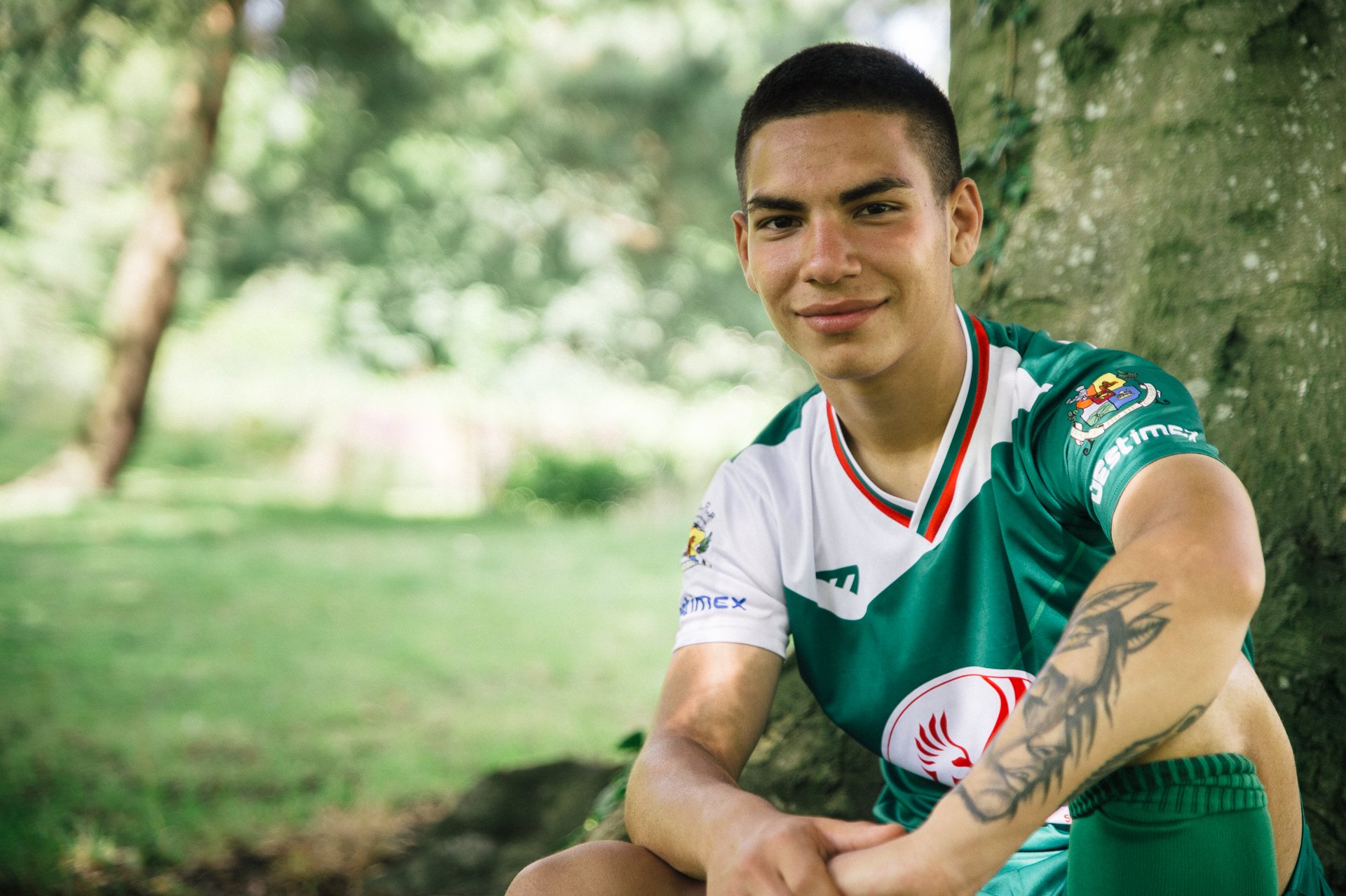“I like the lion because he is a survivor”
|Image: Daniel Lipinski
‘Football is a passion, it is love and emotion for me. Alongside God, it is the most important thing.’
Team Bulgaria’s Bozhidar Kostov gushes about his love affair with the game. ‘It started with watching TV for me. I love to watch football, women’s football too, and to play football.’
The now 16-year-old recalls the beginning of his football journey: ‘I remember I started to play in front of my home at the age of six. When I was eight, I went into an institution. Institution means you don’t live with your family, it means you live with social workers. Most of my time in the institution was playing football.
‘I like the institution because it taught me many things. But there are things that I don’t like, for example a strict regime. I tried to escape from there a few times. But this experience with football has changed me. I feel the change, but I am not finished yet. There are a lot of things that I could improve in myself. But it’s a journey.’
There are currently over 1,000 children in institutions across Bulgaria, including almost 500 children under the age of three. Viktor Kirkov, who heads the street soccer organisation Sports Management Bulgaria, explains that ‘actually, 99% of kids in institutions have parents, they are not orphans. Either their parents leave them in an institution or social workers have taken the kids away from their families.’
He goes on to explain that ‘in Bulgaria we don’t actually have a definition for homelessness in our law, so people who are part of the football team live in institutions or illegal housing in gypsy communities. We also have people who are drug addicts, or refugees, but most are from institutions or gypsy neighbourhoods.
‘Gypsies are an extremely marginalised community, they live separately, and it is very difficult for them to be part of society because politicians always speak against them.’
Roma, gypsy, and traveller communities have long been a target of systematic discrimination and marginalisation across the world. These communities continue to be the focus of social tension with home-making and housing issues being at the core.
|Image: Daniel Lipinski
Sports Management Bulgaria supports people who suffer discrimination and social exclusion. The organisation has been pioneering social integration through football in Bulgaria for nearly a decade, and player Bozhidar Kostov is only one of many people that the organisation has supported to date.
Smiling, Kostov describes how happy he is to be here with us for the 17th edition of the Homeless World Cup in Cardiff: ‘I am so very grateful that I am here, at this championship, my first time flying on a plane, first time in another country. I think I am living the best moment in my life.’ On an end note and indicating his tattoo that dominates most of his forearm he says: ‘The lion is king of the jungle and he is surviving. I like the lion because he is a survivor.’
Words: Deborah May
Images: Daniel Lipinski / Soda-Visual


